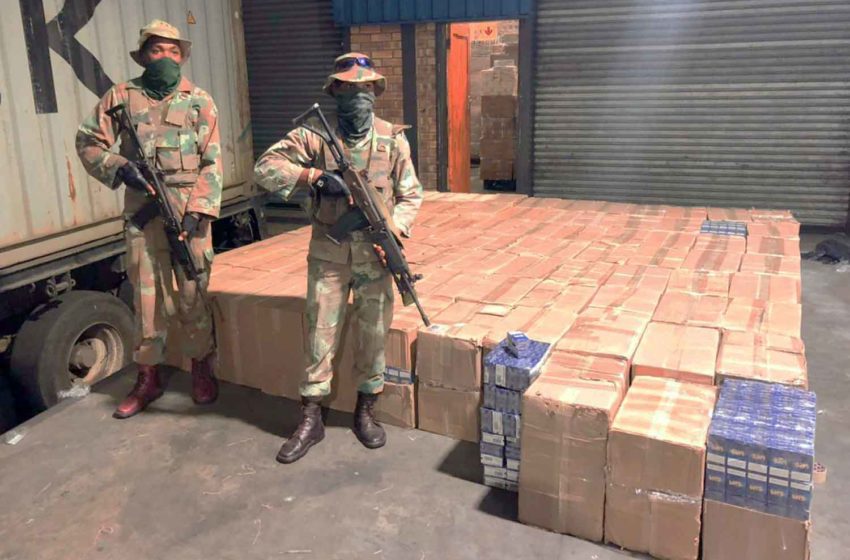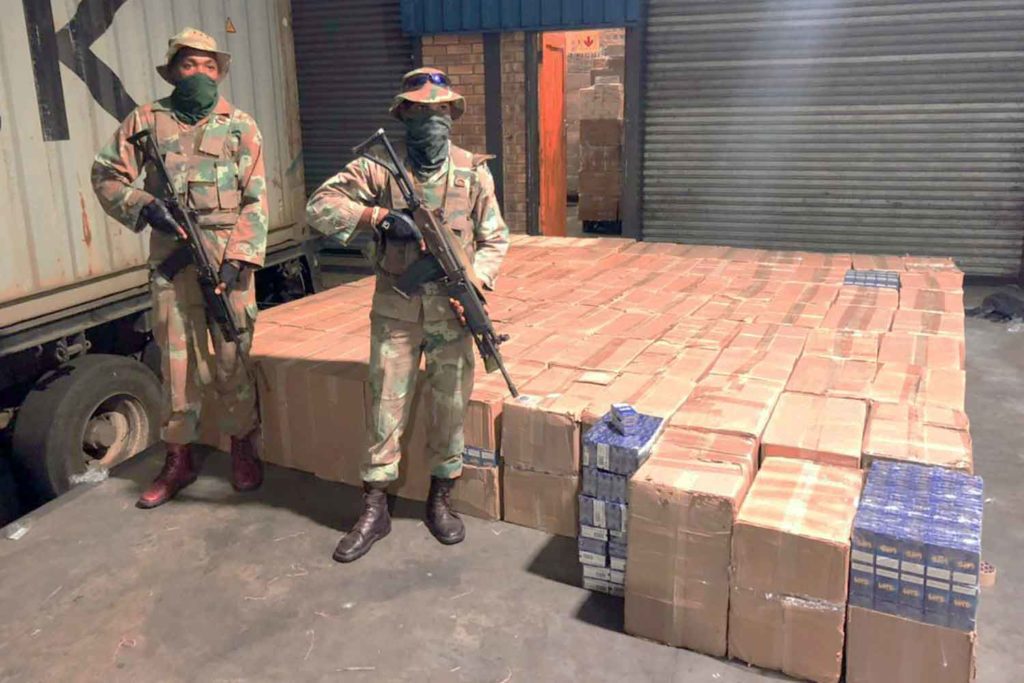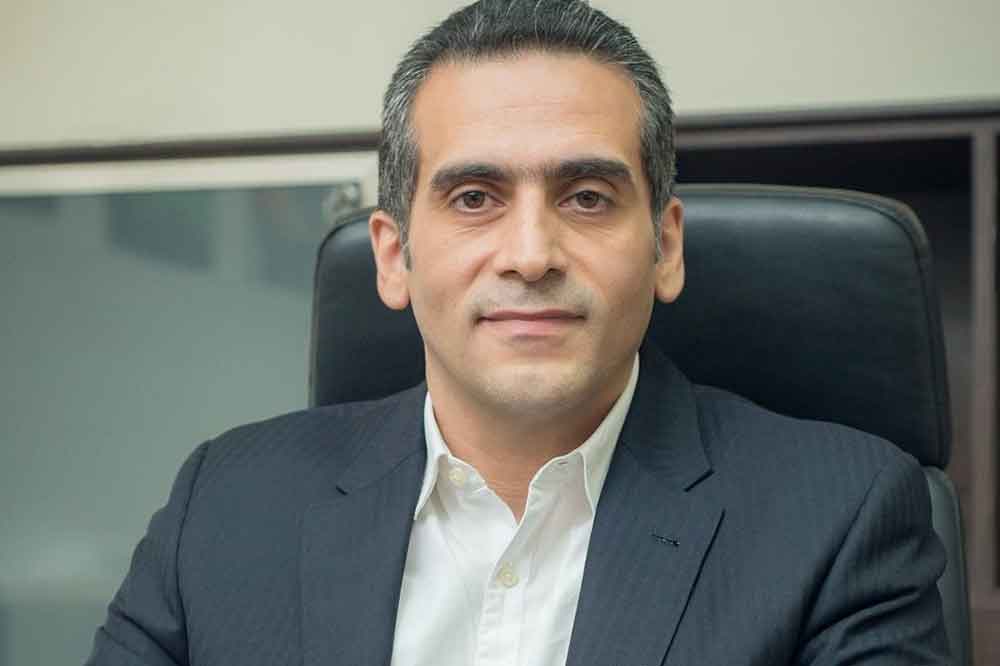Damage Done
- Also in TR Illicit Trade Print Edition
- March 1, 2022
- 0
- 5
- 10 minutes read


Eighteen months after lifting its cigarette ban, South Africa still struggles with inflated illicit sales.
By Stefanie Rossel
Sometimes the best intentions yield the worst possible outcome. In an effort to protect its citizens from the impact of Covid-19, the South African government banned the sale of alcohol, cigarettes and vape products from March to August in 2020.
For the legal cigarette market, the move backfired: Illicit trade, which according to market leader BAT South Africa (BATSA) already accounted for approximately 33 percent of all cigarettes sold in South Africa before the ban, soared to unprecedented new levels. “With very weak enforcement by government during the ban, the legal industry adhered 100 percent to the ban, but it gave the illegal players a golden opportunity to take over 100 percent of the market during that time,” explains Francois van der Merwe, advisor to the South Africa Tobacco Transformation Alliance.
One and a half years after the ban was lifted, illicit tobacco still claims an estimated 60 percent of the total market, one of the highest shares in the world and only comparable to Malaysia. Out of a total market of more than 32 billion sticks, only 12 billion to 13 billion cigarettes were tax-paid in 2021, according to van der Merwe.

An online survey by the University of Cape Town’s Research Unit on the Economics of Excisable Products (REEP) showed that 90 percent of smokers continued to purchase cigarettes during the lockdown. Unable to buy their pre-lockdown brand, 46 percent of smokers switched from a multinational company brand to a brand produced by a local producer. Most of these licensed companies are members of the Free-Trade Independent Tobacco Association. Critics contend they conducted illegal business by selling vast quantities of their products at a fraction of the minimum collectible tax of ZAR21.60 ($1.41) per pack of 20—sometimes for as little as ZAR6 per pack.
According to BATSA, these companies manufacture and earn profit on vast volumes of cigarettes while paying the South African Revenue Services (SARS) only a small portion of the tax owed. BATSA estimates that this under-declaration costs the country’s treasury at least ZAR8 billion annually. For the 2021–2022 government fiscal year, this figure is expected to rise to ZAR21 billion. BATSA reckons that more than 90 percent of all illegal cigarettes in South Africa are manufactured locally.
During the lockdown, illicit whites were freely available, although at hugely inflated prices. The temporary sales prohibition dramatically changed the purchasing environment, the REEP survey found. Before the lockdown, 56 percent of smokers had bought their cigarettes from formal retailers, but only 3 percent did so after the ban had been lifted. The percentage of smokers who purchased from small informal spaza shops in townships increased significantly. Street vendors, friends and family or “essential workers” became new sources of cigarette supply. The profitability of dealing with illicit cigarettes attracted a range of new players, including crime syndicates, but also civilians seeking to make a living amid a worsening economic crisis.
The financial damage of the ban was immense: It cost the government ZAR5.8 billion in tobacco tax revenue from BAT alone. In addition, the government lost a court case filed by the tobacco industry regarding the constitutionality of the ban. BATSA said it lost more than ZAR2 billion due to the sales ban.

Smuggling Prevails
While alcohol sales largely recovered after restrictions were relaxed, legal cigarette sales continued to languish. “Consumers have become used to buying illicit products, and this will make it increasingly difficult to eradicate the illicit trade,” says Johnny Moloto, general manager at BATSA. “The fiscus is projected to lose ZAR19 billion in cigarette excise tax in the 2021–2022 fiscal year alone as a result, which the country cannot afford.”
In November last year, Ipsos found that illegal cigarettes were available in almost half of stores (43 percent) nationwide. Cigarettes are selling for the equivalent of ZAR8 per pack, close to a third of the ZAR21.60 in tax that should have been paid. “It is clear that taxes on these products could not have been paid by the manufacturer,” says Moloto.
While reliably measuring illicit trade is inherently difficult everywhere, it is even more complex in South Africa, where cigarette packs don’t carry security features, such as stamps, indicated tax payments and illicit manufacturers comply with health warning requirements. The Ipsos study therefore used the “mystery shopper” model, under which researchers bought the cheapest cigarettes in almost 5,000 stores nationwide. Its findings echo those of the REEP survey. The ban, it said, would feed an illicit market that “will be increasingly difficult to eradicate when the lockdown and Covid-19 crisis is over.”
Ahmad Ismail, general manager for southern Africa at Japan Tobacco International, believes South Africa has now reached that point. “The legal industry declined by over 40 percent alone during the Covid-19 tobacco ban,” he says. “Illicit tobacco flourished with very little enforcement during the lockdown. We have also witnessed an increase in cross-border smuggling in and out of South Africa, which was a problem that we had not experienced in several years. It will take more than three years for the legal industry to recover—not fully—if government acts immediately.”
“The failure of government to enforce its own regulations during the sales ban was a golden opportunity for illicit operators to establish their brands firmly in the market in the absence of the legal brands,” says van der Merwe. “By dropping their prices post the lifting of the ban, they simply retained their market share, and the legal tax-paying brands are struggling to regain lost market share. With the lower volumes of legal brands, this resulted in many thousands of job losses across the value chain, including the most vulnerable jobs on farms in rural areas, but also in factories processing leaf and manufacturing products.”
At an annual tax conference in 2021, the SARS commissioner noted that the lockdown brought about a proliferation of illicit cigarettes that has now embedded itself as an alternative to the regular brands. He said the SARS was fighting a losing battle in this regard.

Concerted Efforts Needed
Although the major legal cigarette manufacturers in South Africa have called on the SARS and law enforcement agencies to increase their efforts to prevent criminal networks from selling illicit cigarettes, little has been done so far. In May 2020, the SARS canceled a tender for a track-and-trace system. “One of the main challenges was the lack of consultation with the industry, as local manufacturers and wholesalers would have been required to implement the system and bear the cost of implementation,” says Ismail. “Another challenge was that South Africa did not ratify the Framework Convention on Tobacco Control (FCTC) Protocol on Illicit Trade (ITP) and that the tender was not in line with the FCTC approach. This would have enabled them to align the system with global guidelines and systems being implemented and allocate a budget dedicated to fully comply with the protocol guidelines following a recommended and tested process implemented in Europe.”
In 2020, the SARS instructed all cigarette manufacturers to install production counters that report directly to the authorities how many cigarettes are coming off the production line in real time. Moloto, whose company believes not enough is being done to combat illicit trade at this point, argues that this measure had not been enforced. Ismail claims that while being a step in the right direction, the system still relies on the transparency of manufacturers to report on their production levels.
Moloto says the South African government must act to stop the flow of illicit cigarettes before the problem becomes even more entrenched. Both BATSA and JTI have asked the government to ratify the ITP immediately. “South Africa has been a founding member of the FCTC where the former minister of health, Honorable Dr. Aaron Motsoaledi, signed the ITP in Geneva in January 2013,” says Ismail. “Putting in place a track-and-trace system would allow tobacco products to be traced from the manufacturer to the wholesaler and to retail and contribute to the reduction of massive illegal cigarette trade.”
JTI believes that a full digital volume verification system, in combination with a track-and-trace system, would be the most effective and affordable migration. This would give the government real-time insight into what is manufactured and thus help it curb under-declaration and tax evasion.
“Track-and-trace aimed at tracking cigarettes from manufacturing plants to point of sale on its own will not prevent illicit trade,” Ismail admits. “However, it will support law enforcement agencies and legitimate businesses working in collaboration to reduce the problem. Consistent audits by the SARS need to continue, seizures of illegal tobacco products must intensify, and law enforcement agencies need to work in a coordinated manner to increase prosecution or closures of operators that decide to conduct illegal practices.”
In addition to the other measures, BATSA has called for a minimum legal retail price of ZAR28 per pack. “This is a simple way to allow the police to seize illegal cigarettes more effectively without having to prove that the manufacturer has not paid the taxes due,” says Moloto. “It could be implemented quickly through the declaration by the government of a minimum price for cigarettes. It would also help consumers to differentiate between legal and illegal products.”
South Africa’s experience proves that prohibition does not work, according to Ismail. “Illegal trade cheats everyone: governments, society, consumers and legitimate businesses,” he says. “It robs governments of tax revenues, harms hardworking retailers and invites organized crime into communities.”

